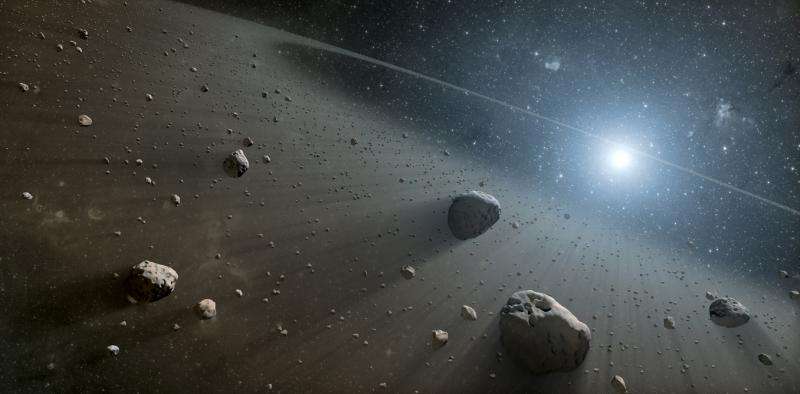How to divide the trillions of dollars obtained in the course of mining in space?

One asteroid can cost trillions of dollars in the form of platinum and other metals contained in it. These resources could lead to global enrichment, which will raise the standard of living throughout the world and potentially benefit all of humanity.
There are already companies, for example, Planetary Resources , which are developing technologies for the industrial development of asteroids, which will make the extraction of minerals in space a reality, phys.org reports .
')
Peter Diamandis, co-founder of Planetary Resources and founder of the X-Prize Foundation, believes that such a benefit for humanity gives us a moral imperative to explore and use this opportunity. He also stated that "there are twenty trillion dollars up there who are waiting to be cashed!"
However, behind the utopian rhetoric and dazzling dreams of wealth, there are some very real problems.
Ownership and the Outer Space Treaty
The Space Treaty (Outer Space Treaty, abbr. OST) entered into force in 1967. Among its basic principles:
the exploration and use of outer space must be carried out for the benefit and in the interests of all countries, and be the property of all mankind
and
outer space is not subject to national appropriation, either by proclaiming sovereignty, or by use or occupation, or by any other means.
OST is usually interpreted as a contract that prevents unconditional ownership, which is sometimes considered an obstacle to commercial activities in space. But such statements simply do not hold water.
Presentation video from Planetary Resources
There are many examples where earthly resources are used cost-effectively in the absence of unconditional ownership. According to a routine procedure, the government allows companies to participate in the extraction of wood, minerals and oil exploration, thereby receiving royalty payments (in 2014, US revenues from such payments amounted to about $ 13.5 billion).
Nevertheless, some supporters of mining in space are in favor of major changes or the termination of the Space Treaty, arguing that there is no incentive for commercial exploitation without unconditional ownership.
The “SPACE Act of 2015”, adopted in the United States, is just the first attempt to change something in this ongoing international debate (an extract from the law “US citizens can participate in commercial intelligence and the development of space resources”; some scientists believe that this law violates Space Treaty, ed.).
Balanced approach?
For that matter, there are other global spaces that are common to all mankind, for example, the seabed.
Behind the lofty rhetoric about the benefits for humanity, there is a “ghost” of the economy - the possibility of a world where several trillionaires will enjoy the view from space, while others can hardly earn their living on the surface.
However, commercial interests and the search for profit can be an incentive for exploring outer space. But space is not the Wild West and we do not live in the days of the gold rush. Numerous public and private entities involved in the exploration and potential exploitation of outer space, as well as international cooperation, will benefit everyone.
Alaska Model
There is a balanced and pragmatic approach that will promote commercially profitable activities, as well as bring tangible benefits to all mankind.
It is important to note that this approach has a precedent that has been in place for almost 40 years, invented and implemented by Alaska Governor Jay Hammond. Its Alaska Permanent Fund , created in 1976 and a unique “citizen dividend”, when part of the income from oil turnovers through dividends is directly distributed among Alaskans, can serve as a good example. Each resident annually receives the same amount from this fund.
The first dividend payment was made in 1982, and in 2015 its amount was $ 2072 per person.
International body
But how will this work for outer space?
We need an international body similar to the International Seabed Authority , which was established by the United Nations Convention on the Law of the Sea or the International Telecommunication Union governing the international use of radio frequencies.
This body could license the development of space resources and organize the collection of royalties. In turn, the proceeds, or most of them, will be deposited in Planetary Resources, possibly under the auspices of the World Bank . And every citizen on Earth, say, at the age of 18 and older, will receive dividends on an annual basis as his rightful share.
Even tiny dividends, by the standards of developed countries, will be of great importance for the third world countries. If the amounts are really equal to trillions of dollars - this will radically change our world.
Source: https://habr.com/ru/post/393263/
All Articles